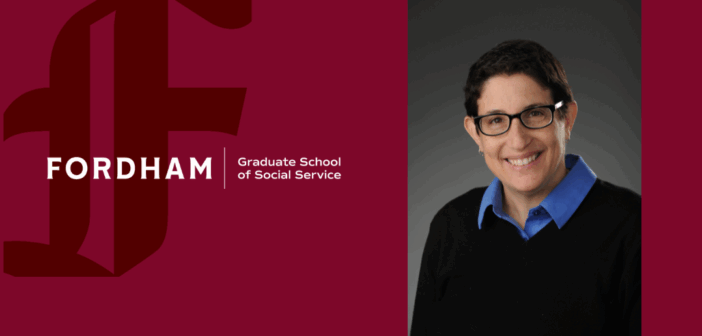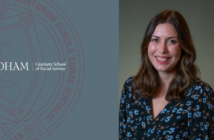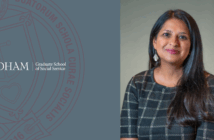The Fordham University Graduate School of Social Service congratulates Associate Professor Laura Wernick, Ph.D., who recently received the 2025 Disability Manuscript Award from the Council on Social Work Education (CSWE)!
The Disability Manuscript Award recognizes scholarship that contributes to knowledge about disability; full participation of persons with disabilities; social, political, and economic issues related to disability and persons with disabilities; and social work education curriculum materials focused on disability and persons with disabilities.
Wernick earned the award for their article “Action Steps Toward Dismantling Ableism in Social Work Education,” published in the Journal of Sociology and Social Welfare.
Wernick will accept the award at this year’s Annual Program Meeting (APM) conference in October.
A Call for Recognition
While social work is known for its commitment to championing social justice, Wernick’s article notes that the profession—particularly in the academic setting—is not meeting the call to properly support those with disabilities.
“There is a glaring gap in our profession when it comes to engaging with and supporting disabled individuals,” the article reads.
Indeed, Wernick et al explained how social work programs often leave students and faculty advocating for accessibility accommodations, and disability is often left out in classroom discussions around diversity. This can lead to professional blind spots for future practitioners.
“It is often implied that disabled people will be our clients, while social workers themselves are non-disabled,” the article said.
How to Move Forward: More than Just ‘Basic Access’
Wernick and their co-authors explore how social work programs can solve this systemic issue and push the profession forward. To do that, they said, it will take more than institutions only providing basic access for disability needs.
“Basic access is not enough; rather, we must work towards active inclusion and affirmation in order to be truly just,” the article said.
The authors assert that individuals with disabilities should not only be provided with adequate services for their needs, but their perspectives should be celebrated to further professional innovation. Those with disabilities bring unique perspectives to problems, the authors explained, and those perspectives should be implemented to help formulate pedagogies, scholarship, and practices.
The authors acknowledge that change can come gradually in academic settings, and, therefore, these needs will not be met in one fell swoop. With this realization, they proffer “easier changes toward disability inclusion” that schools can begin to implement now, including:
- Hiring and supporting disabled staff/faculty
- The inclusion of crip theory and disability justice within social work curriculum
- Naming of/engaging disability and ableism as part of diversity, equity, inclusion (DEI) efforts
- Reframing social work’s approach to disabled people (e.g., moving toward an interactional model; more accessible conferences [including virtual options]; increasing part-time and online programs; using universal design for learning [UDL] in curriculum and syllabi design; cross movement solidarity; ensuring a wide variety of accessible/affirming field placements).
Fordham GSS is excited to support Dr. Wernick as they accept this prestigious award at APM in October, where they will also serve as a speaker in the conference’s opening plenary event.
Read Wernick’s entire article in the Journal of Sociology and Social Welfare.



